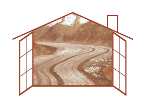TRADITIONS OF THE VALAIS
In Switzerland, customs are cultivated. Habits that were important to our ancestors would otherwise be lost, and with them a piece of Swiss identity. It is fascinating to see how people worked, what they ate and how they used their leisure time. From 16 to 18 September, you can experience Valaisan customs on Bettmeralp.
Valais dishes - cholera and raclette
First of all, let's talk about food: Cholera and Raclette are two typical dishes from the Valais. If you think of the Valais dish Cholera, for example, a leek cake with apples, potatoes and raclette cheese, you're not sure whether the name comes from a cholera epidemic or from the place in the bakehouse where the coal was kept and the pan with the leek cake was placed in the coal, Walliserditsch: chola. It makes sense that the name originated there. Who likes to name a dish after a disease?
Raclette was once a staple food of the herdsmen and shepherds. The French word racler means to scrape off, because you scrape off the top layer of half a grilled cheese wheel onto a plate with a knife. The oldest documents of this Valais tradition date back to the 16th century.
Valaisan games and music - Gilihüsine and Z'Hans-Rüedi
Play Gilihüsine? Never heard of it. A primitive form of Hornussen. I already know Hornussen, but this is the first time I've heard of Gilihüsine. That brings us back to the customs that should not be lost. On Saturday, from 10 a.m., the game will be presented and you can already register. From 5 p.m., the Valais entertainer and songwriter Z'Hans-Rüedi will provide musical entertainment, and there will also be yodelling and alphorn blowing.
Sounds like a great weekend with lots of entertainment in the rustic Valais.
The complete programme can be found on the Aletscharena website, including a map of the village with details of the restaurants and shops taking part in this event. Traditional handicrafts such as silhouette cutting will also be on display there.
Gmietlich sitze wer hier zäme, bi em Glassji güetem Wi. Fröhlich sell en Lied erchlinge und z’Alphoru isch öi derbi.



